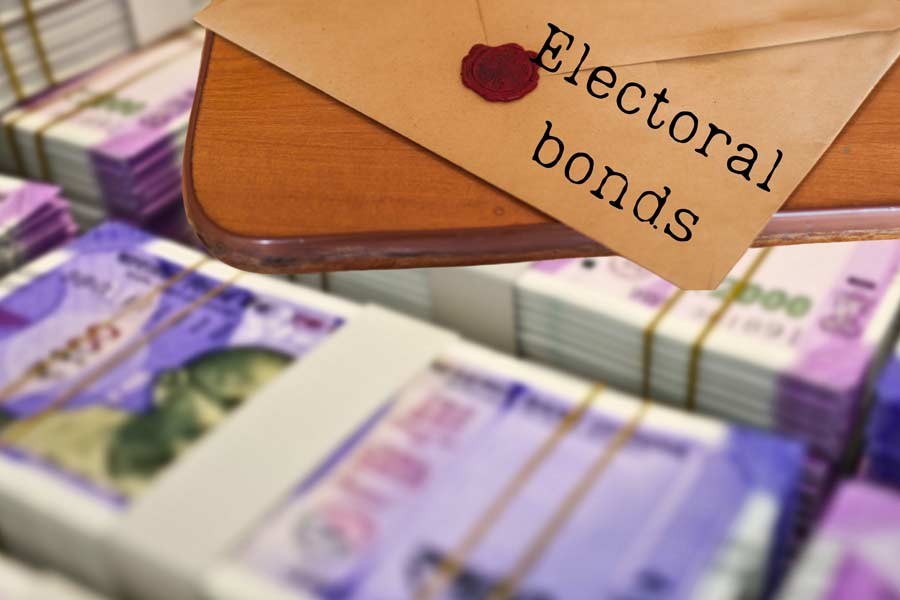In two interviews, the prime minister defended the electoral bonds scheme as the means to prevent black money from entering election funding. The scheme was born of his ‘pure thought’. Narendra Modi said that the Opposition had lied about its misuse and added that everyone will regret it. The regret would presumably be caused by the Supreme Court’s judgment that outlawed the scheme for being unconstitutional. Surely, the prime minister’s remarks sprang from his sadness at everyone’s lack of vision? Mr Modi introduced this scheme to make election funding transparent, so that the money trail — who was donating how much to which party — was traceable through bank records. Bank procedures would also be the guarantee against the donation of black money.
Mr Modi emphasised the virtue of transparency in his comments. Yet the Supreme Court’s ground for outlawing the scheme was the lack of transparency. Earlier, the government had touted anonymity as the scheme’s virtue, as donors could contribute to parties of their choice without appearing upfront. But they were not anonymous to the government; the reluctance of the State Bank of India, which handled the bonds, to reveal the necessary data before the Supreme Court’s strictures was remarkable. Evidently, Mr Modi’s definition of transparency pertains to the government alone, while the court upheld the voters’ right to know about donors and their beneficiary parties. Evidence that selective transparency allowed quid pro quo arrangements with and palliative donations to the government may raise questions about what the prime minister was defending. Meanwhile, black money through cash donations has not been stopped; so that argument is blurry too. But there was nothing blurry about Mr Modi’s suggestion that the Supreme Court’s ruling has pushed electoral funding towards black money. Issues of propriety seem immaterial, as the burden was taken up by the Union finance minister, who said that should the Bharatiya Janata Party return to power, the government will revive the bonds scheme after a ‘lot of consultation’. The one thing ‘they’ have not decided is whether they will go for a review ruling. Will ‘consultation’ make the scheme constitutional? Will it ensure equal knowledge among voters and parties? When an outgoing government talks of reviving a scheme the Supreme Court has outlawed, in what direction is Indian democracy heading?










